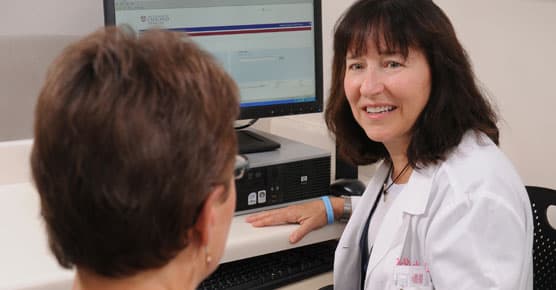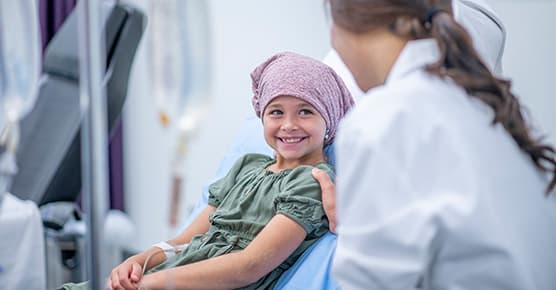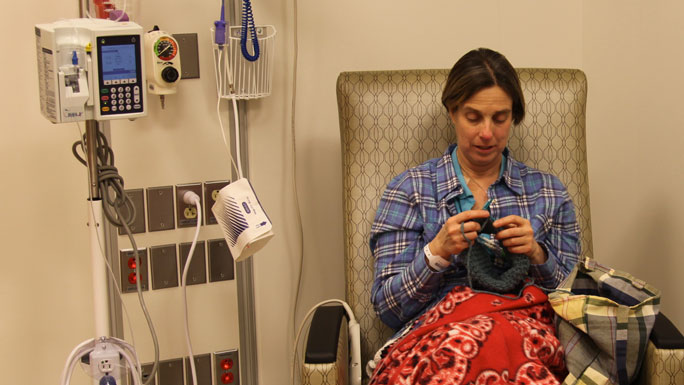Outpatient Stem Cell Transplantation
Request an Appointment
We are currently experiencing a high volume of inquiries, leading to delayed response times. For faster assistance, please call 1-855-702-8222 to schedule your appointment.
If you have symptoms of an urgent nature, please call your doctor or go to the emergency room immediately.
For Referring Physicians
To refer a patient to the stem cell transplant program, please call 773-702-1994.
By submitting this form you acknowledge the risk of sending this information by email and agree not to hold the University of Chicago or University of Chicago Medical Center liable for any damages you may incur as a result of the transfer or use of this information. The use or transmittal of this form does not create a physician-contact relationship. More information regarding the confidentiality of this request can be found in our Privacy Policy.
* Indicates required field

Disease-Specific Care for Blood Cancers
Get details about blood cancer diagnosis and treatment at UChicago Medicine.

Cancer Care Second Opinions
Request a second opinion from UChicago Medicine experts in cancer care.

Pediatric Cellular Therapies
Our pediatric specialists have extensive experience in stem cell transplantation and other cellular therapies for children, adolescents and young adults.

